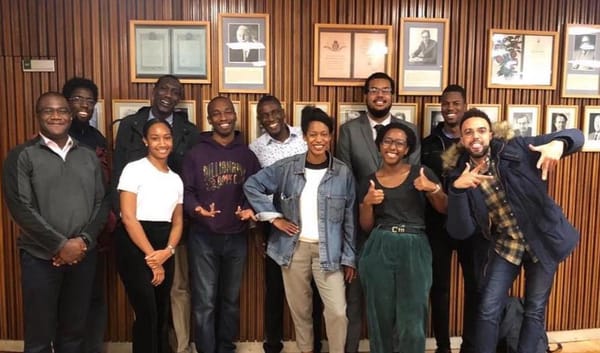European Space Agency gets on board with NASA’s exploration of the moon
The ESA has announced almost €3 billion of investment into “the robotic and human exploration of the Solar System”
The European Space Agency and NASA signed a historic agreement on Tuesday 13th October, which includes a large expansion of the contribution that Europe is already making to NASA’s Artemis programme. The agreement also contains longer-term plans for exploration of Mars.
Project Artemis is aptly named after the Greek goddess Artemis, twin sister of Apollo and goddess of the Moon. The Apollo programme sent the first man to the moon in 1969, and the Artemis programme similarly plans to send the first woman to the moon by 2024 (along with the next man). The programme was authorised in 2017, when President Donald Trump signed the Space Policy Directive 1.
The plans for Project Artemis are broken down into three stages. The first phase, Artemis-I, will be an unmanned test flight around the moon in autumn 2021. The second, Artemis-II, will repeat this trip with a crew onboard in 2023. Finally, Artemis-III will land astronauts at the lunar south pole of the Moon in 2024. This is an ambitious target, and many have questioned the viability of the project, with the ESA acknowledging in their announcement that “it will be a close-run thing to have it ready, tested, and working by 2024”. This is not where the ambition ends – NASA Administrator, Jim Bridenstine, has said that after this mission, the plan is to establish “a long-term presence on the Moon by the end of the decade”.
The ESA will be initially involved with the “Lunar Gateway”, a space station that will orbit around the moon and allow for more frequent lunar exploration. The ESA will supply service modules that provide the crew with air, water and electricity on their journey to the Gateway on NASA’s Orion spacecraft. They will also deliver modules to the Gateway itself, including a pressurised living area called the I-Hab and a module for refuelling and communications with Earth.
During the Artemis Programme, the ESA and other international partners will land robotic equipment on the moon’s surface to take samples and conduct experiments, in preparation for the arrival of astronauts at the lunar south pole. Once Artemis-III is underway, the ESA will support the astronauts landing on the moon by providing communications with the Lunar Pathfinder satellite. The contract for the building of this satellite has been awarded to the UK company, Surrey Satellites Technology.
While the UK space agency is still part of the ESA, the UK’s involvement in Project Artemis goes beyond the ESA/NASA agreement. This week, the UK Space Agency, along with partners in Australia, Canada, Italy, Japan, Luxembourg, and the UAE, also announced the signing of the “Artemis Accords”. These are a set of principles which will guide future exploration of space. Science Minister Amanda Solloway said that the agreement “underlines our commitment to strengthening the UK’s role in the global space sector”. Given the current political climate and the ongoing negotiations about the UK’s exit from the European Union, it is not surprising to see the UK Space Agency attempting to separate itself from the ESA and establish itself as its own global power in space exploration.
The Artemis programme, though ambitious and expensive, is an exciting prospect for the future of space exploration. If the programme succeeds in landing the first woman on the moon, it will no doubt inspire a generation of young women to become interested in outer space and science. The project will involve more international collaboration than NASA has seen since the construction of the International Space Station. If it succeeds, it could be the gateway for humanity’s exploration of space, further than we have ever gone before.





